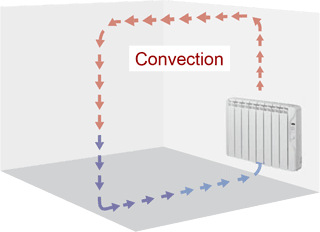September 2021
-
Intruder Alarm Stockist Bristol security specialists
Posted on: 21 Sep 2021. Category: Intruder Alarm Stockist BristolWhere to get a burglar alarm in Bristol? As a leading stockist of Intruder alarms we are often asked about the benefits of installing a system and whether to go 'hard wired' or 'wireless'. With the nights now drawing in and people returning to work it is a good time to think about installing an intruder alarm for added security and peace of mind, for retro fit or tricky installations we often recommend going for a wireless alarm system to minimise disruption and reduce costs. We will talk a bit more about these below but firstly let's look at the benefits of installing an intruder alarm:

Benefits of installing alarm systems
- Peace of mind. Installing a home security system gives peace of mind to you and your loved ones that your property is protected and you will be notified of any unwanted intrusion. Security when your at work or on holiday, ensuring your home and it's contents are safe and secure.
- Active Deterrant. Having an intruder alarm is an active deterrent , this is especially true if you have a visible Siren/Bell Box on the outside of the property. We also specialise in CCTV and security and fitting a good burglar alarm and CCTV is the best way to prevent and deter thieves.
- Protects your valuable possesions. Whether your belongings have an intrinsic cash value, or are only valuable to you, nobody wants to see them stolen. A properly installed home alarm is enough to scare off all but the most determined would be intruders.
- Reduce Home Insurance Premiums. A home alarm system should be seen as an investment. Yes there is an upfront cost but this is offset over time as a lot of insurance companies will reduce the cost of your premiums.
Once upon a time, all home security systems were hardwired. Connecting every sensor, keypad, camera and other peripherals required a technician to open up the walls, run wires to and fro, then patch everything together at the end — and then do it all over again if you need any maintenance, updates or changes. Wireless home alarm systems not only free us from those constraints, they introduce benefits that weren’t even dreamed up a few years ago.
Pros of wireless alarm systems
- Easy to install and uninstall. Installing and moving a wireless home security system is a DIY job. Moving? You won’t have any problems taking your security devices with you.
- Renter-friendly. Since you don’t need to open up the walls, wireless alarm systems are a strong choice for renters. There’s usually no need to damage or significantly alter the property.
- Flexibility and scalability. Want to add another camera, more motion detectors or a few door and window sensors? No problem. Wireless systems make it easy to add devices.
- Easy upgrades. Wireless systems are more future-proof than their hardwired counterparts. If the system or its components become broken or outdated, you can swap in new ones without too much trouble.
- Smart home integration. Wireless security systems and smart home hubs are becoming more and more compatible. It’s a major convenience to be able to arm and disarm the alarm and operate all of your smart home devices in a centralized manner. Just keep in mind that some brands and manufacturers play better together than others, so you may need to investigate before making a purchase.
- Affordability. It’s possible to get up and running with a good wireless alarm system for less than £200. The systems are much less expensive than their hardwired counterparts, especially since there’s no need to pay for installation.
- Wi-Fi and cellular communications options. Security systems that depend on a landline stop working if the lines go down or get cut. Wireless systems don’t have this vulnerability because they use Wi-Fi, cellular networks and/or wireless mesh networks to interconnect each device and to reach emergency services. Alarm systems that use a cellular network (either as the primary means of communication or as a backup) can communicate through storms, power outages and downed lines, as long as there is sufficient cellular coverage in the area.
- Battery power. Wireless alarm systems often use batteries as their main source of power or as a backup. As a result, you can stay up and running even through a power outage.
- Remote control. Wireless systems are easier to operate from outside the house. Depending on the system, you can arm and disarm either from a smartphone app or using a key fob/transponder.
-
Electric Heating Stockist Bristol
Posted on: 11 Sep 2021. Category: Electric Heating Stockist BristolAs a leading Electric Heating System Stockist in Bristol we are often asked about the different types of Electric Heating Ssytems and their advantages and disadvantages. One of the most common questions is "What is the differnece between Electric Radiators and Electrics Heaters?"
With so much innovation in the development of new electric heating products, you can be forgiven for being somewhat exasperated by the vast array of heating choices available to you – especially if you're not sure what you need and why. But fear not – help is at hand! By the end of this short guide to electric heating, you will have all the information you need to make an informed decision.

Radiators store heat and are ideal for prolonged everyday use.

Convection heaters don't store heat and are ideal for occasional use.
Radiation and Convection
Let's keep this simple. An electric radiator radiates heat stored within a heat-retaining medium, usually thermal fluid or ceramic. Think how the sun radiates warmth; if you step into the shade and therefore out of the radiation, you feel less warmth. By contrast, an electric panel heater or "convection heater"; heats the air circulating within an enclosed area. (If you can smell the heat, you're likely experiencing convection heating. The smell exists because, just like a toaster, the panel heater's heating elements are exposed to the air, and so, burn the dust particles floating about in it.)
Confusingly...
Whilst there is a clear technical distinction between radiated and convected heat, in reality an "electric radiator" uses a combination of radiated and convected heat (it heats circulating air to some degree) and can be described as a "radiator" or "heater". Confusingly, some electric panel heaters may also be described as a radiator, where "radiator" is being used as a synonym for "heater" (much like people use "hoover" in place of the generic "vacuum cleaner").
Nevertheless, the crucial distinction is this: a heater that does not contain a heating-retaining medium, such as thermal fluid or ceramic to store heat, cannot be accurately described as a radiator.
Okay, okay, enough with the technical details already – just tell me what heater I should choose!
Well, it all depends on the room and how you intend to use it.
Everyday vs Occasional Use
The economic choice of electric radiator or electric panel heater for your room mostly comes down to deciding if the room is for everyday or occasional use.
Because electric radiators store heat, they are ideal for use as the primary source in those rooms you use every day and for prolonged periods of time (e.g. living room or bedroom). Electric panel heaters, by contrast, are ideal for those rooms used only very occasionally (e.g. guest bedroom or conservatory) and that do not require the continual heating an electric radiator would provide.
In terms of upfront and running costs, electric radiators are cheaper to run but cost more upfront, whereas electric panel heaters are cheaper upfront but cost more to run. This is because electric panel heaters don't store heat, and so continually draw upon the power supply whilst they heat the air. By contrast, electric radiators require power only whilst they are heating up the storage medium.
Summary
The difference between electric radiators and electric panel heaters is this:
- Electric Radiators store heat and are ideal for prolonged everyday use
- Electric Panel Heaters don't store heat and are ideal for occasional use
If you're using a room almost continually, it makes sense that the heat is radiated from a store and that you get the most use of the heat you've paid to collect there; whereas if you use a room only very occasionally, you want to heat the room only whilst you're occupying it, and you don't want to pay to collect heat to be radiated into the room long after you've left it.



